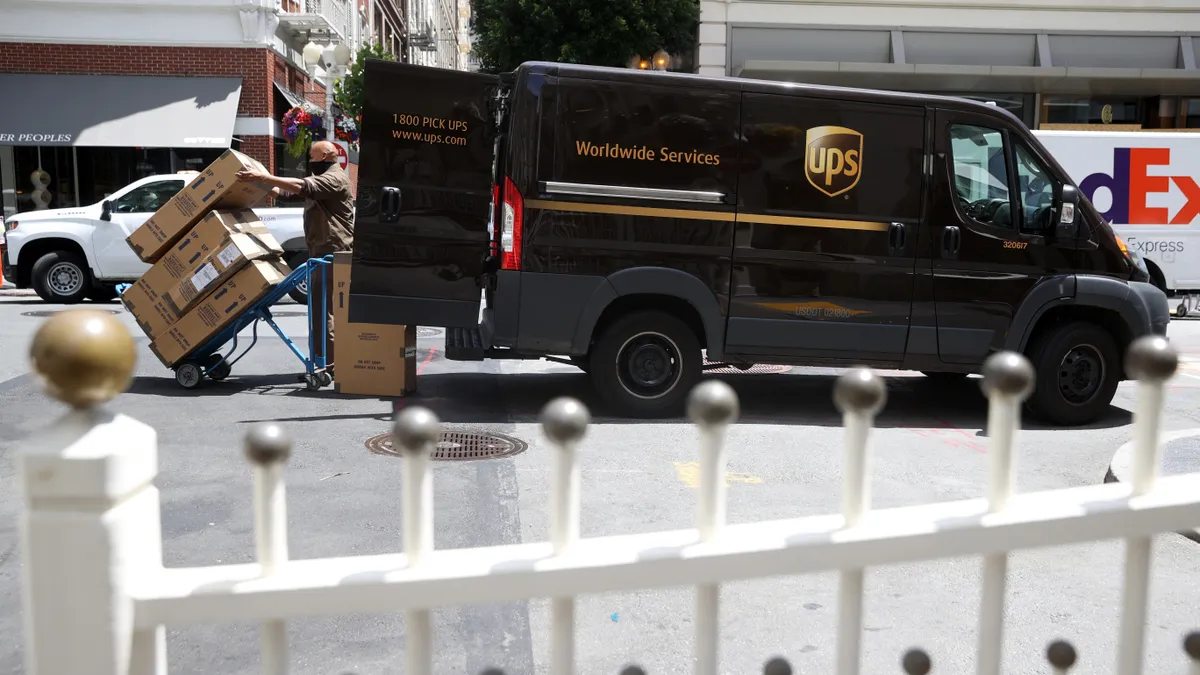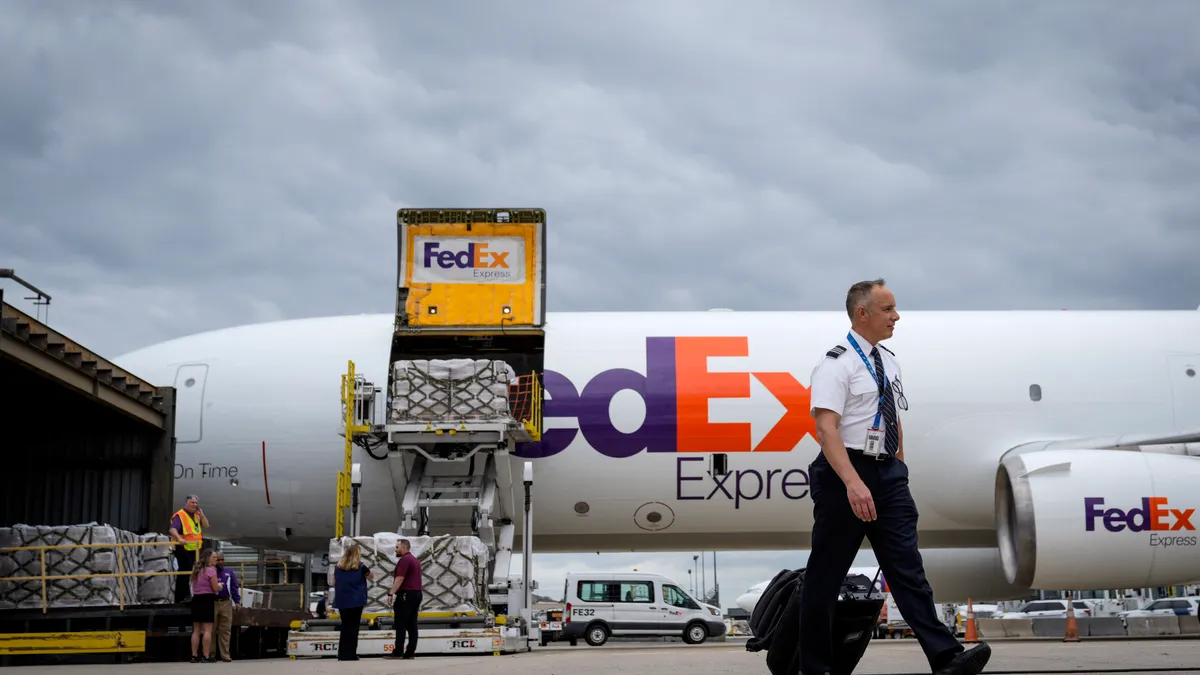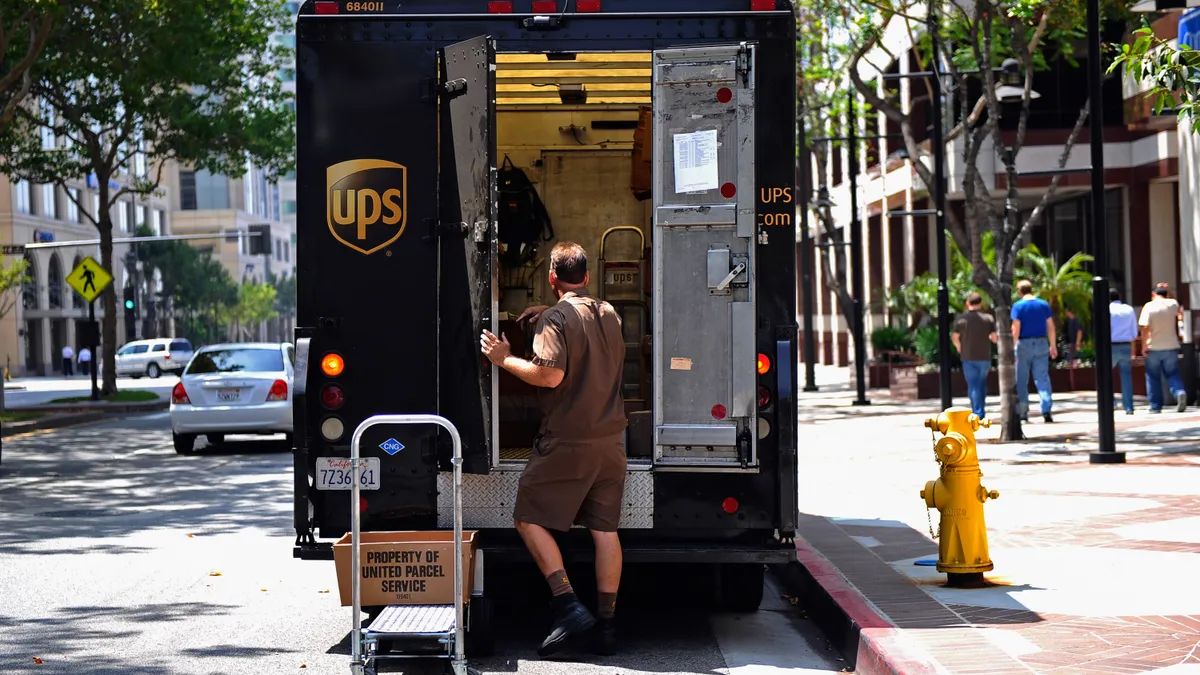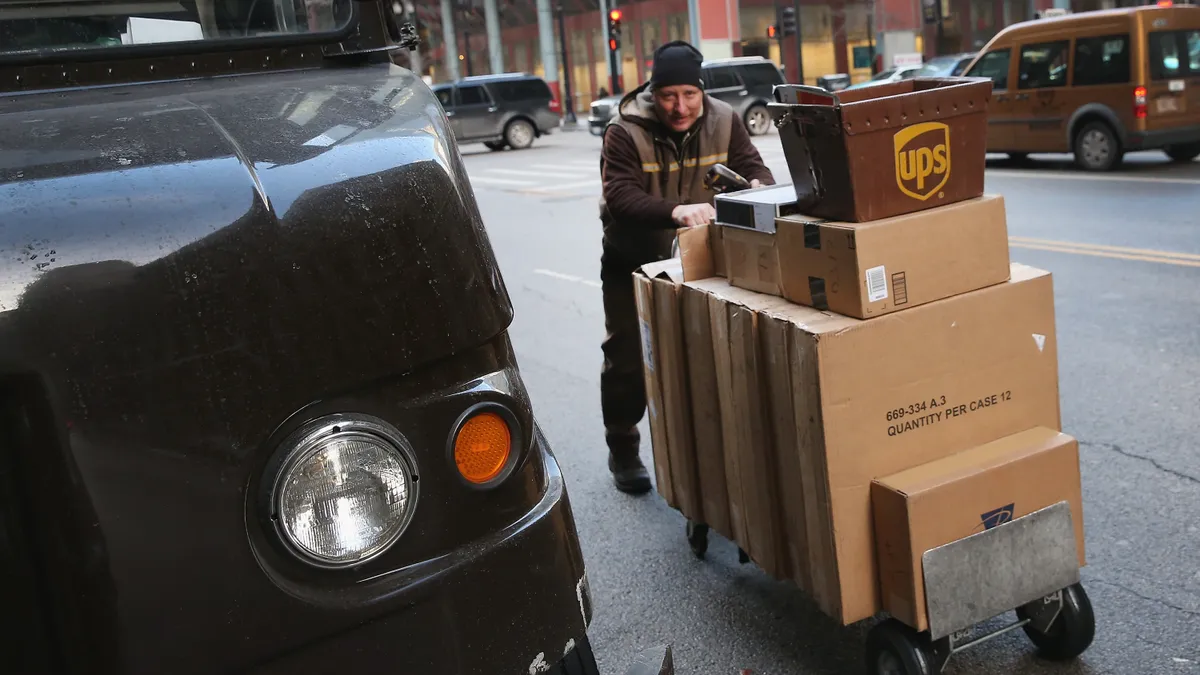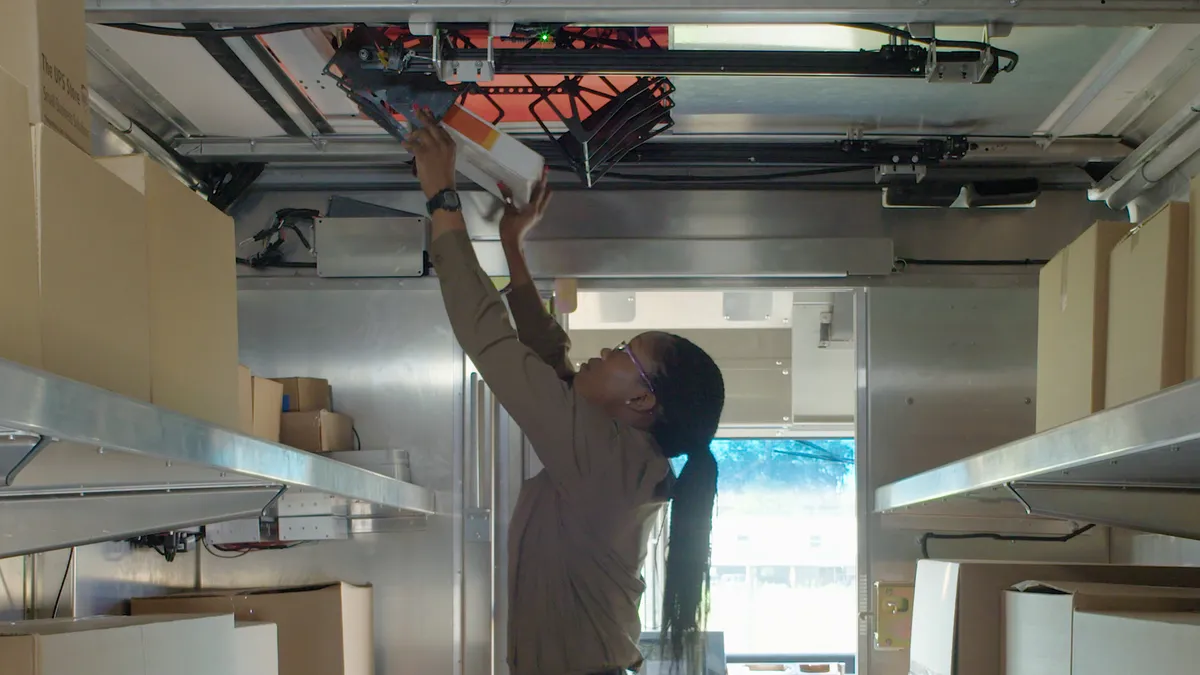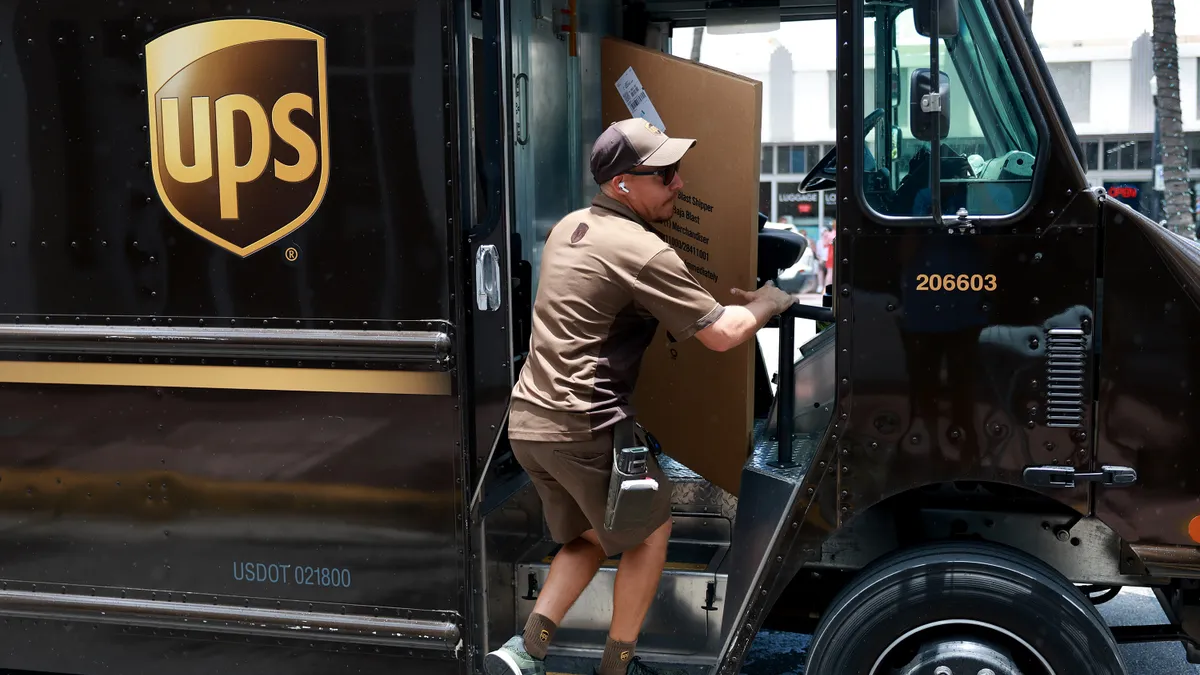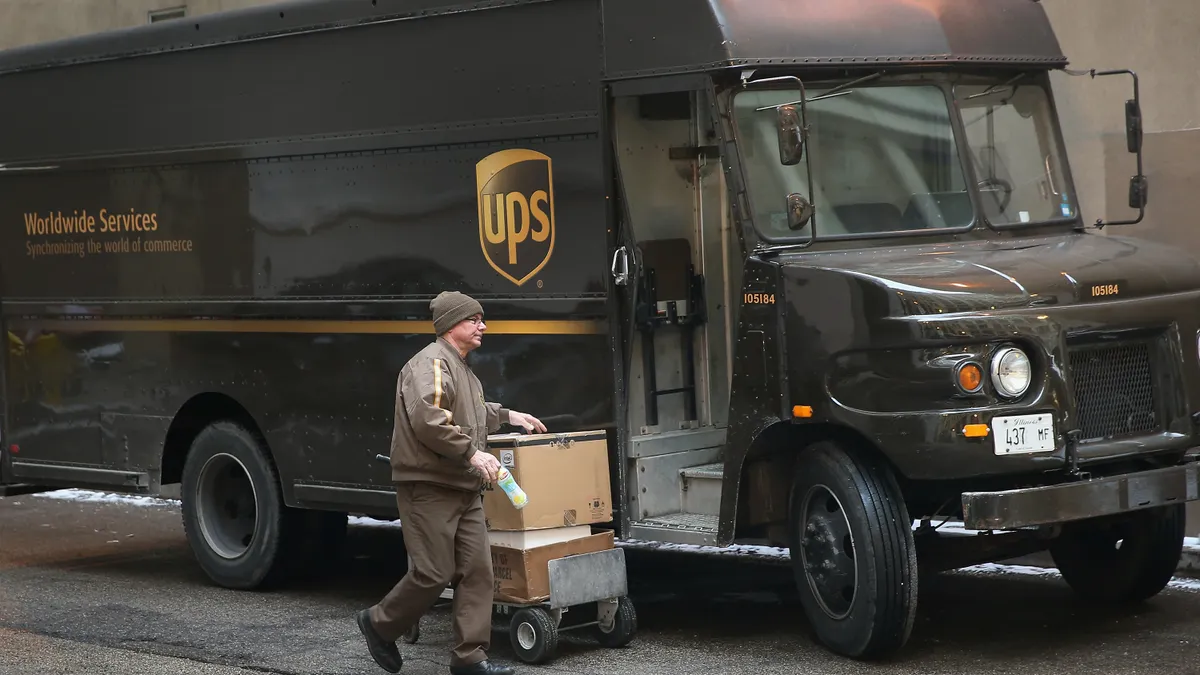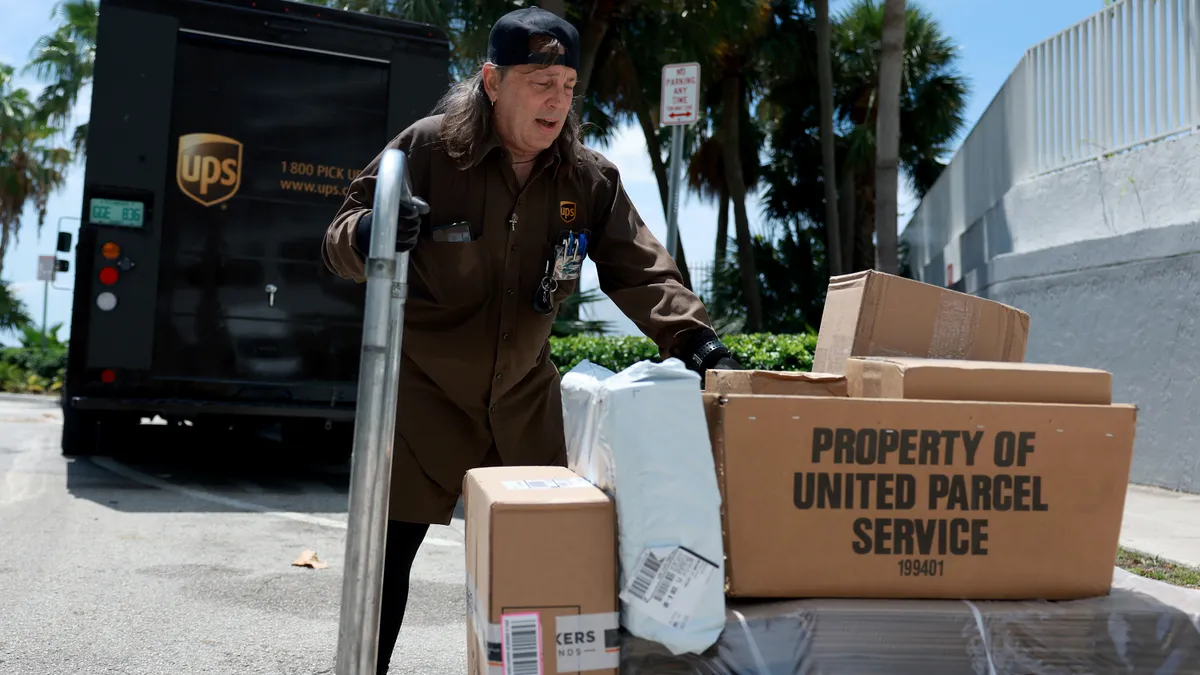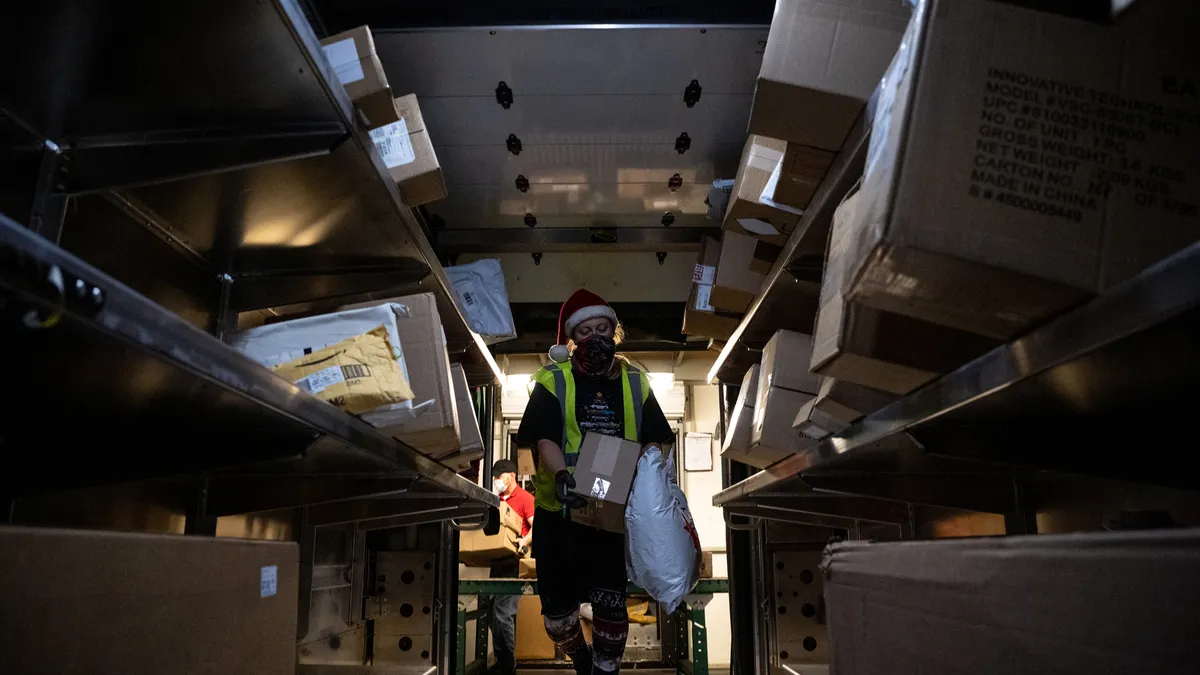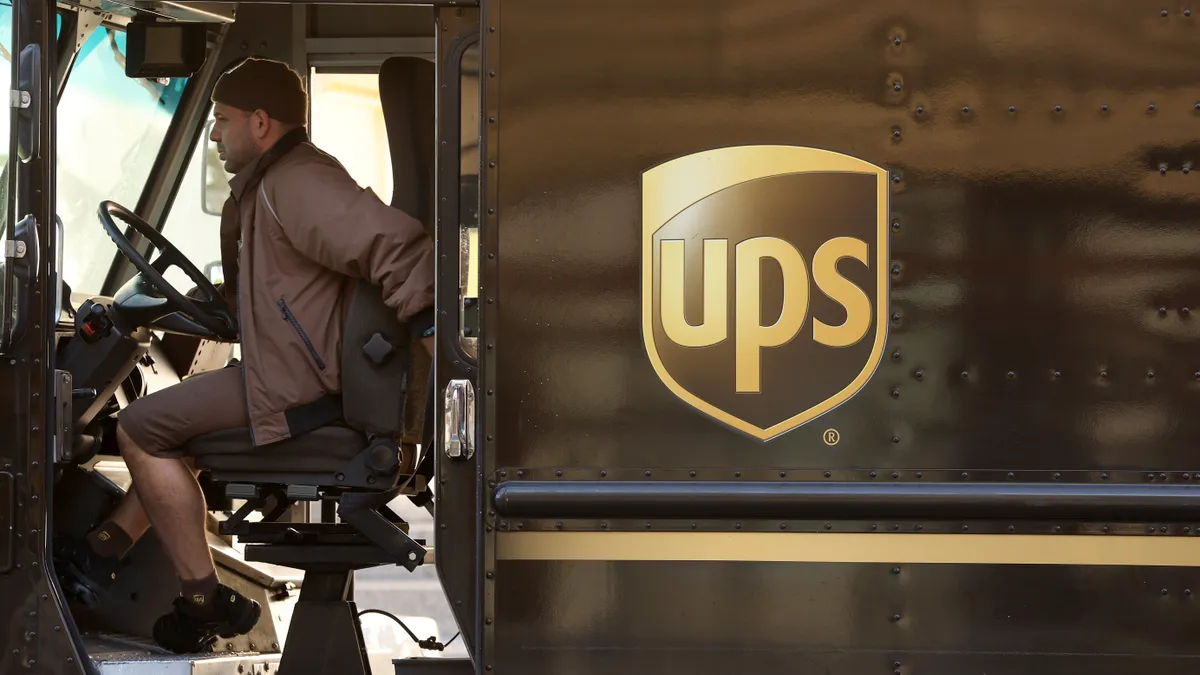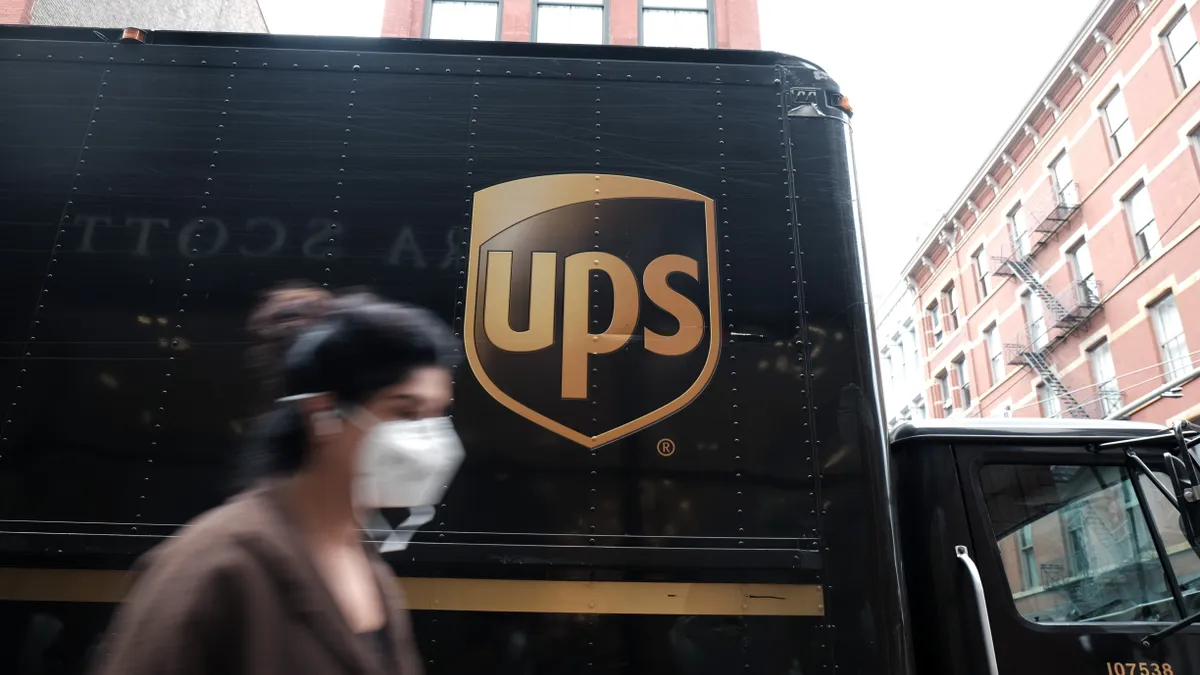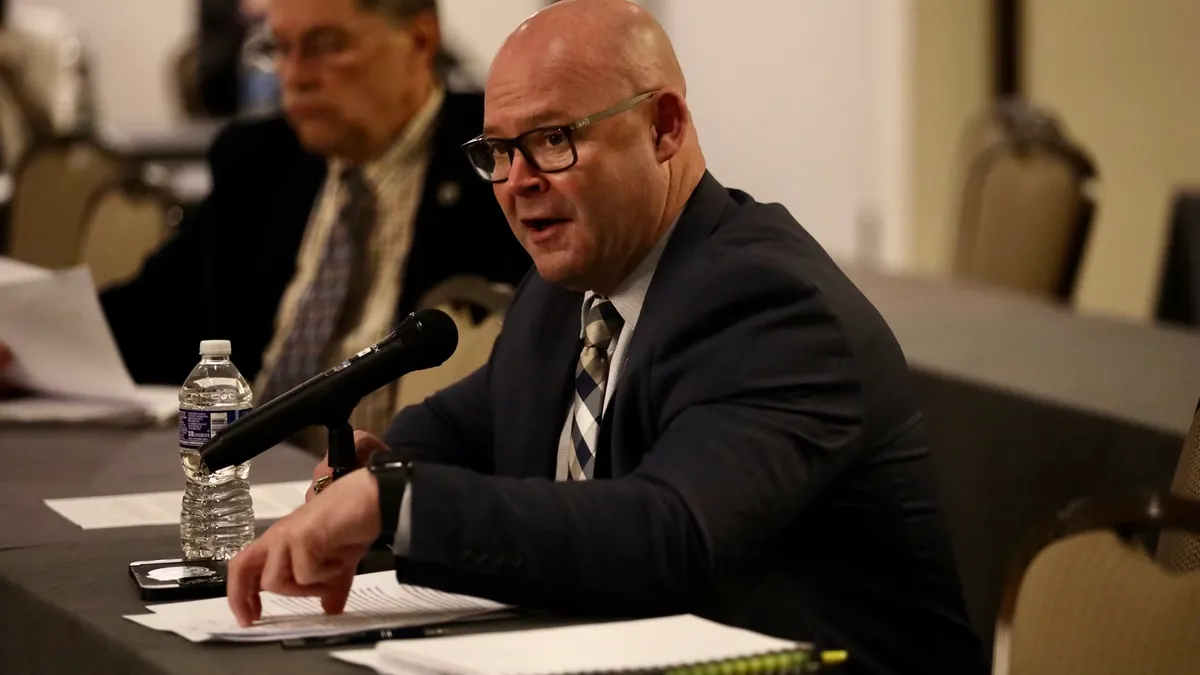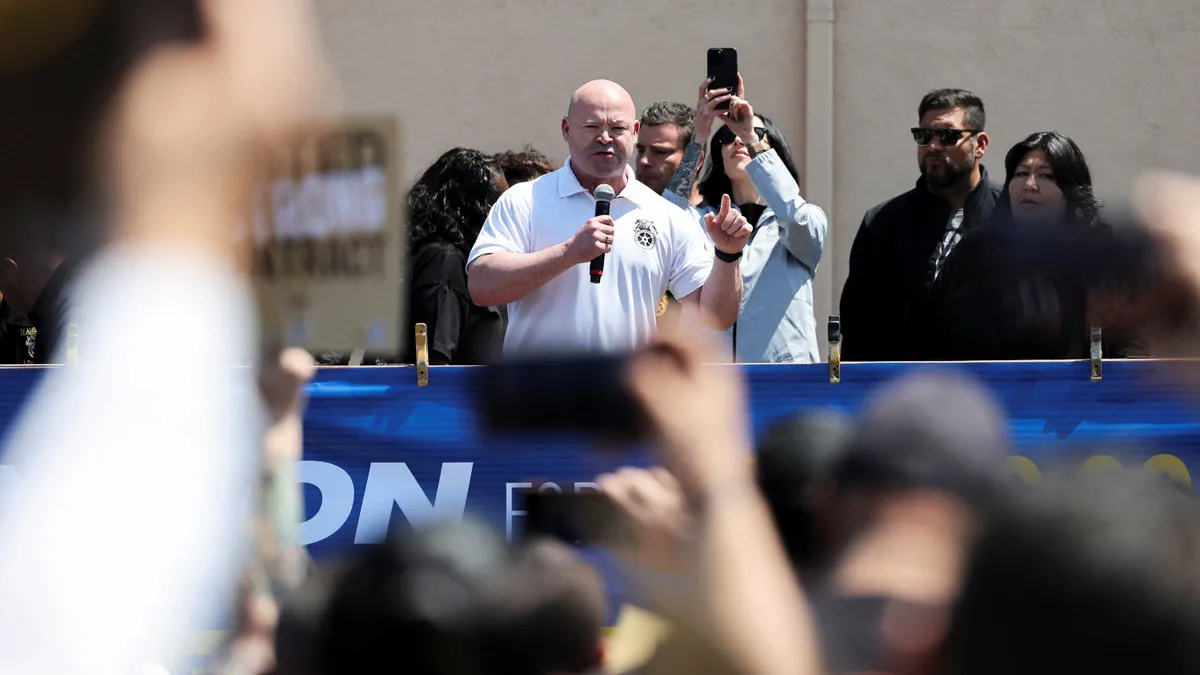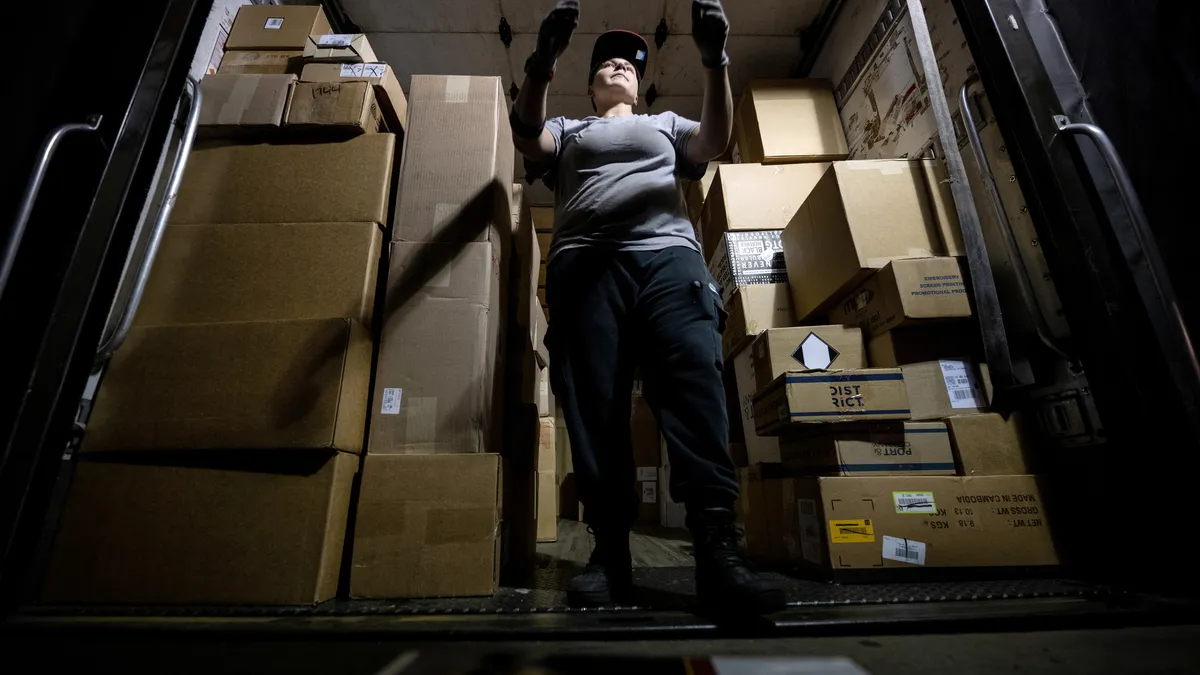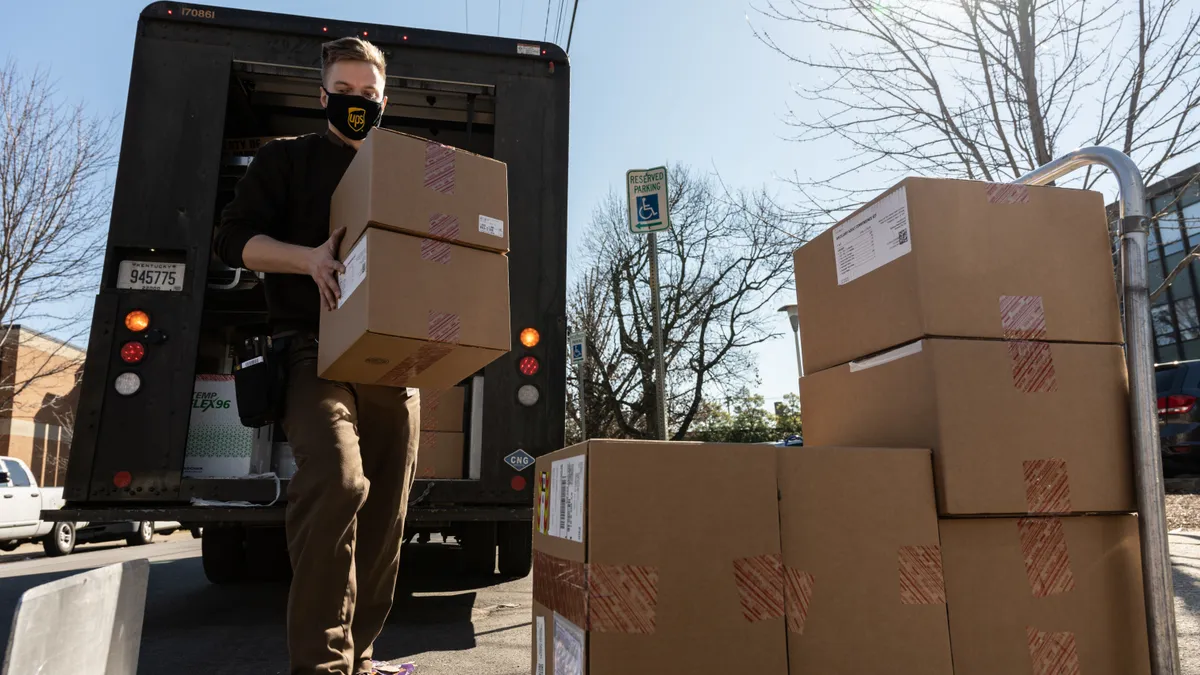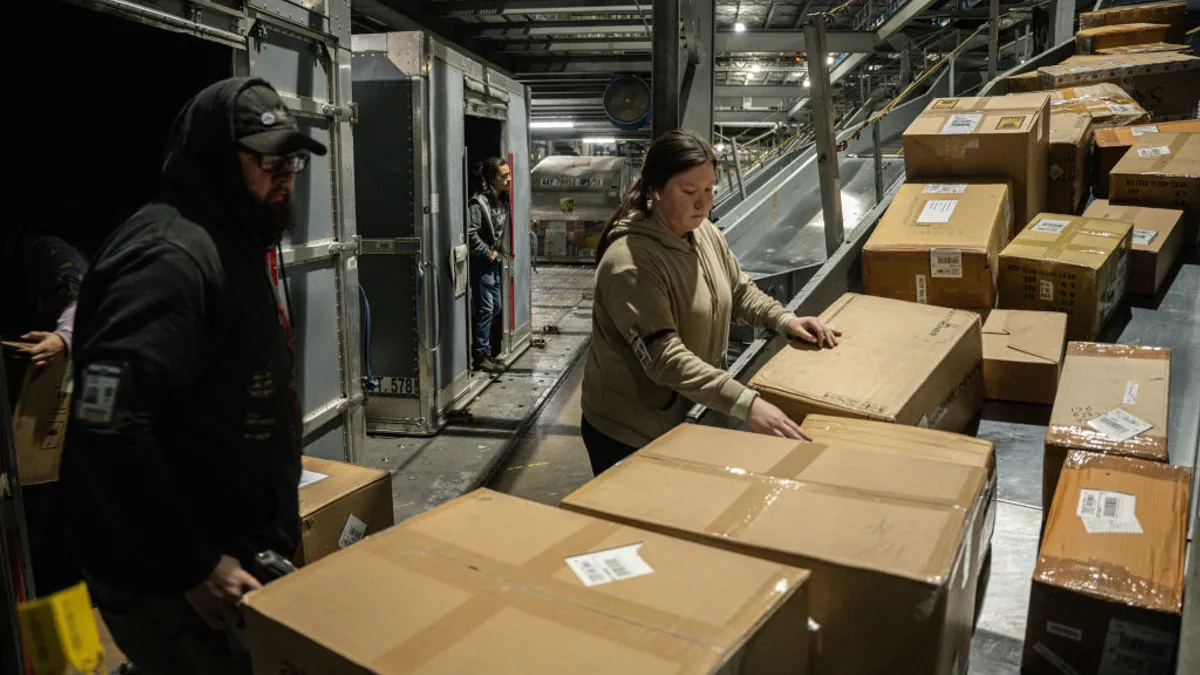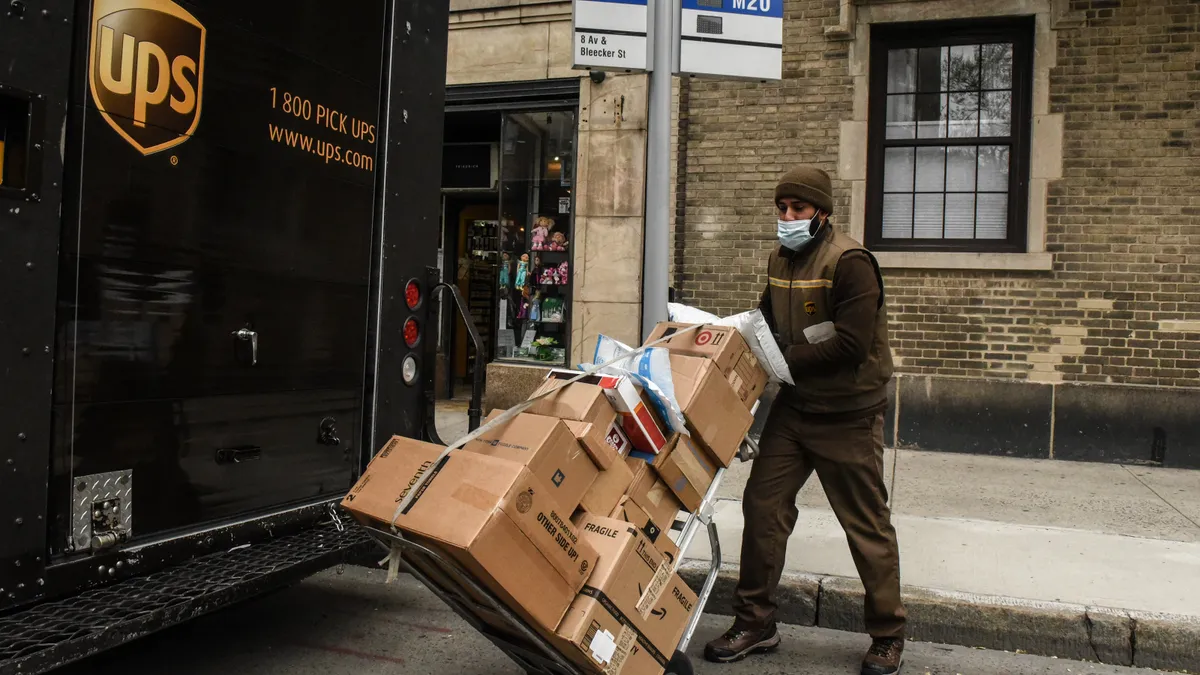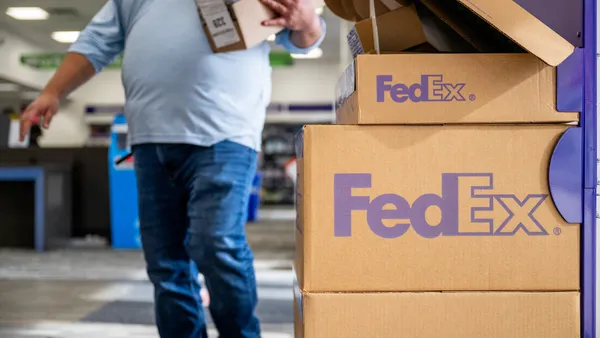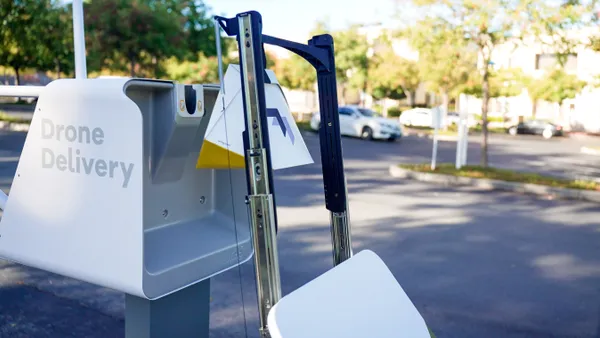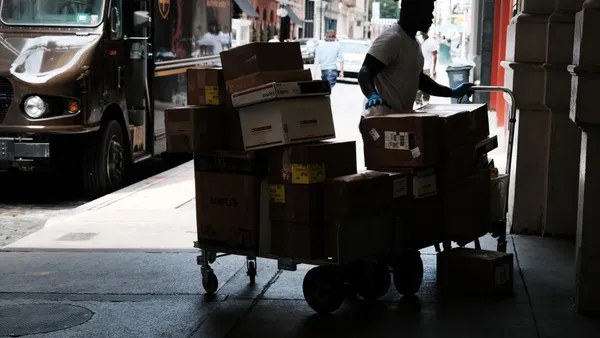The Teamsters union has told UPS it won't enter national negotiations with the delivery giant until agreements on regional contracts have been finalized, according to a news release Wednesday.
Prior to the planned kickoff to national negotiations on April 17, the two sides have been negotiating supplemental agreements, riders and addendums. These items address specific regions and address topics not covered under the national contract like paid time off. The union said out of 40 supplements to the national contract nationwide, 30 remain unresolved.
"It’s up to UPS to get its act together, show up, and do right by its workforce," said Teamsters General Secretary-Treasurer Fred Zuckerman in a statement. "Until then, there will be no negotiations on a national contract.”
The current contract is set to expire July 31, and the Teamsters have made it clear the union is ready to strike if a deal isn't reached by then. Around 330,000 of UPS' U.S. employees are represented by the Teamsters, according to the company.
A strike would create massive disruptions for UPS' network, which handles millions of packages daily for a wide range of customers. Rival FedEx has looked to capitalize on the situation, urging customers to shift volumes from UPS in order to avoid issues stemming from a possible strike.
Despite the Teamsters’ notice, UPS said in an emailed statement that it will be ready to conduct national negotiations with the Teamsters next week while also discussing supplemental agreements.
"Discussions around national negotiations and supplemental agreements often take place at the same time," the company said. "We have bargained in good faith since the start and will continue to review and consider all proposals that are brought to the table. We are committed to reaching an agreement that provides wins for our employees, the Teamsters, UPS and our customers."
The Teamsters allege that regional items are unresolved following "repeated delays by UPS." In an April 10 update, the union said the pace of bargaining on supplementals remained slow due to UPS' refusal to discuss economic provisions, which include pay and benefits.
“The Teamsters and UPS have 12 weeks to come to terms before our contract expires, and UPS is not taking this seriously,” Zuckerman said. “UPS has had four months to bargain in good faith and reach agreement on supplemental issues. They haven’t. They don’t get to drag out this process."
The Teamsters will likely see pressure from their membership throughout the negotiation process "to push for even higher wage increases than they've seen in years past" due to inflationary pressures, Jeremy Tancredi, a partner in West Monroe’s Operations Excellence practice, told Supply Chain Dive last week.
"New [Teamsters] leadership wants to make their mark, so they're going to be pushing harder," Tancredi said. "They feel like they have good leverage with everything going on in the economy to say, 'We're still the best in the business. You need to take care of us as such.'"



